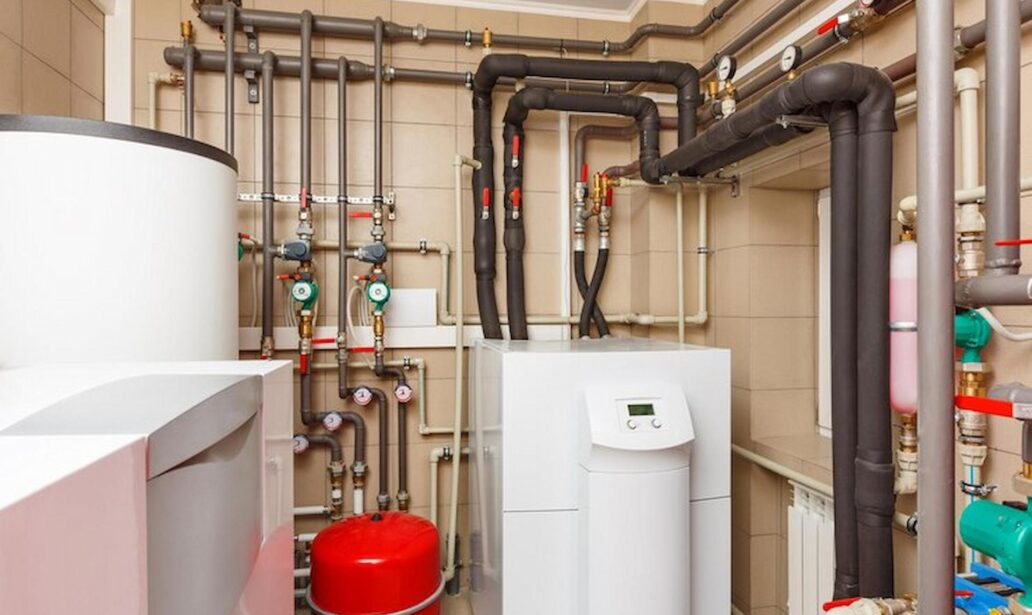As the global push for renewable energy sources gains momentum, homeowners and businesses increasingly explore more sustainable heating methods. The ground source heat pump (GSHP) is one technology that’s been making waves. In an era of climate-conscious decisions, GSHPs stand out as a top contender for efficient, eco-friendly heating. But what makes them truly worth the investment? This article will explore the science behind GSHPs, recent technological advancements, and why these systems offer long-term benefits that outweigh the upfront costs.
A Primer on Ground Source Heat Pumps
Ground source heat pumps, or geothermal heat pumps, harness the Earth’s natural heat stored underground. While the surface temperature fluctuates with the weather, the temperature just a few metres below the surface remains stable throughout the year. GSHPs utilise this constant temperature by circulating water and antifreeze through underground pipes, absorbing the heat and transferring it into your home or business.
It’s not just about heating, though. Many GSHP systems are versatile, offering cooling in the summer months by reversing the process and drawing heat out of the building. This dual functionality enhances their appeal, particularly in regions with variable climates.
Environmental and Financial Benefits
The appeal of ground source heat pumps isn’t just in their technology; the environmental and financial benefits make them a compelling choice for those looking to reduce their carbon footprint while saving money in the long term.
Reduced Carbon Emissions
GSHPs significantly reduce carbon emissions compared to traditional heating systems like gas boilers or electric heaters. Since they utilise the Earth’s natural heat, heating (or cooling) your home becomes far more energy-efficient. According to recent studies, a GSHP can reduce household carbon emissions by up to 70% compared to gas heating. With the UK government setting targets to achieve net-zero emissions by 2050, investing in a GSHP can help you play a part in this ambitious goal.
Energy Efficiency and Cost Savings
Though the initial installation cost of a GSHP is higher than that of traditional heating systems, the long-term savings are substantial. The UK’s Energy Saving Trust estimates that a ground source heat pump can lower heating bills by up to 50%, depending on the system and property type. Over time, this can amount to significant financial savings, particularly as energy prices continue to rise.
Additionally, GSHPs are incredibly durable, with an average lifespan of 20 to 25 years, and the underground pipe systems can last over 50 years. This longevity and minimal maintenance requirements make GSHPs a cost-effective investment over the long haul.
Future-Proofing Your Home
As energy costs continue to rise and governments push for greener energy solutions, installing a ground source heat pump can be seen as a form of future-proofing your home. Traditional gas boilers, while cheaper initially, will likely become obsolete as carbon taxes and other environmental regulations come into effect. By switching to a GSHP now, you can ensure that your home has a sustainable heating system that will remain relevant and compliant with future regulations.
Moreover, as renewable energy technologies continue to evolve, GSHPs’ efficiency will only improve, making them an even more attractive option for the future.
A Worthwhile Investment for a Greener Future
Ground source heat pumps offer an eco-friendly, energy-efficient, and financially rewarding solution to home heating. Recent technological advancements have made these systems more efficient and accessible, while government incentives reduce the initial cost burden. Despite the upfront investment, the long-term savings on energy bills and the reduced environmental impact make GSHPs a worthy investment for those looking to future-proof their homes.

